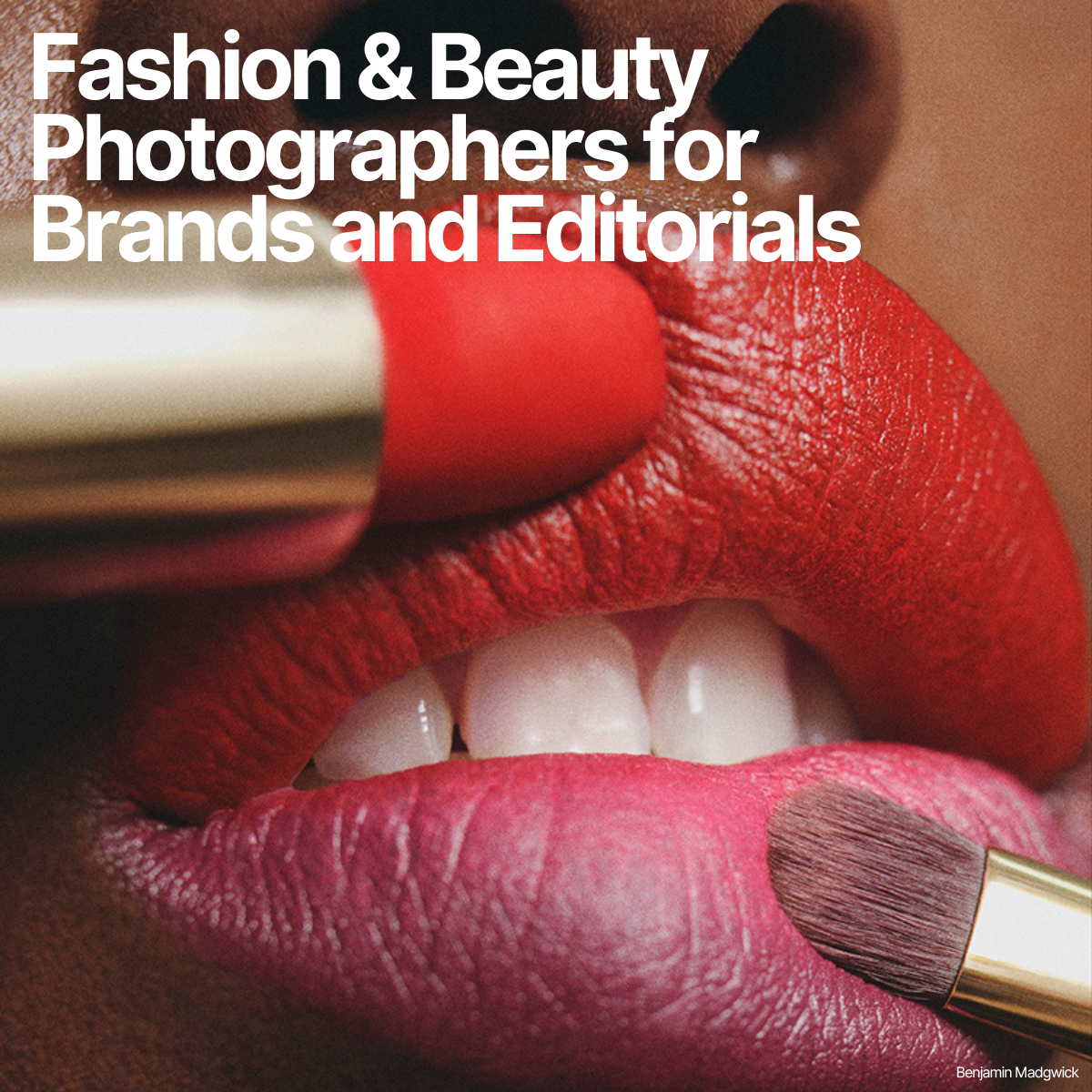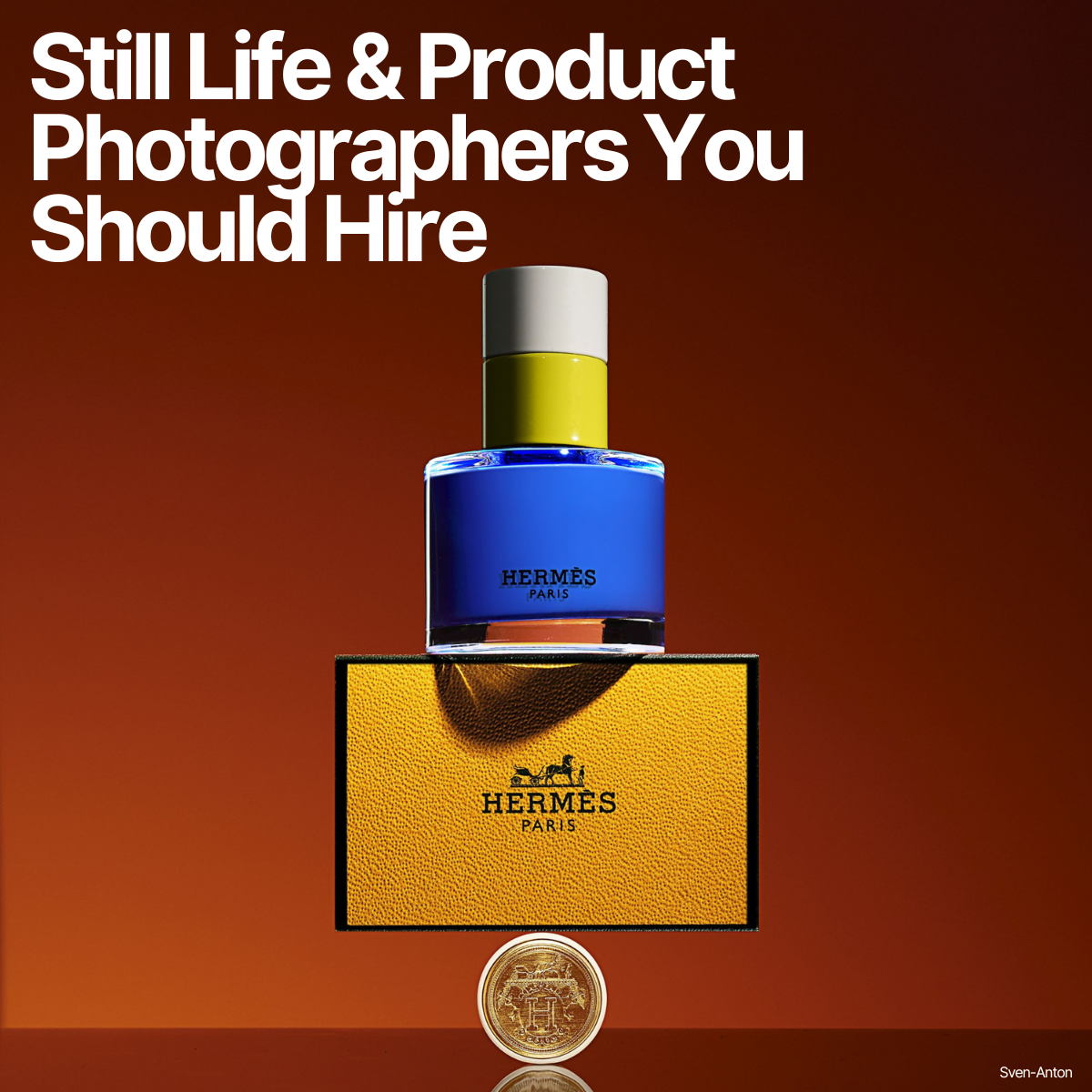Navigating the photography industry can be a challenging journey, especially when it comes to finding the right photo agent to represent your work. The right agent can transform your career by connecting you with clients, negotiating deals, and broadening your audience reach. But how do you identify the perfect agent to match your unique style and professional goals?
In this post, we share expert insights from top photo agents worldwide, covering what they look for in talent, the best ways to approach them, and common mistakes to avoid. Whether you’re an emerging photographer or an established professional, these tips will guide you on the path to securing the right representation to elevate your career.
We’re grateful to the following esteemed photo agents who took the time to share their invaluable insights from years of experience in the industry:
· Niall Horton-Stephens from Horton-Stephens, UK
· Robert Bacall from Robert Bacall, USA
· Sylvia Weinmann from Avenger Photographers, Germany
· Patrizia Gregnanin from Contesti Photographers, Italy
· Michele Richards-Berry from IDC Photographers, New Zealand
· Sherwin Taghdiri from Picture Matters, USA
· Rachel Henderson from Flint, Australia
· Christine Saunders, Art buyer and Professional Coach for Creatives

1. HOW DO YOU TYPICALLY FIND NEW TALENTS?
Contesti Photographers: We usually do research on advertising communication periodicals and, lately, on Production Paradise.
IDC Photographers: By keeping an eye on Instagram, photography exhibitions, and industry award sites, I stay up to date on who is shooting and emerging.
Picture Matters: We look back at saved promos from artists we liked but couldn’t add, then search platforms like Production Paradise, At-Edge, Workbook, and Instagram.
Flint: We actively follow industry trends and welcome direct inquiries from photographers and directors.
Robert Bacall: Via recommendation, look at award winners, look at industry sites.
Avenger Photographers: Photographers often introduce themselves, and we conduct personal interviews. Chemistry and professionalism are essential.

2. WHAT'S THE BEST WAY FOR PHOTOGRAPHERS TO APPROACH AGENTS LIKE YOU?
Contesti Photographers: It can be useful to connect through social media, such as Instagram or TAU Visual, adci, and definitely Production Paradise.
IDC Photographers: Any contact is good contact, as long as it's consistent and showcases high-quality, relevant work. I appreciate when photographers note why they believe they’d be a good fit, showing they’ve researched my agency.
Picture Matters: I prefer an introductory email with some work or a portfolio link, so I can quickly see if their style and genre align with what we’re seeking.
Flint: Ideally, through a well-crafted email showcasing their work. Following up with a call ensures their email isn’t missed, and if there’s potential, we’ll arrange an in-person or Zoom meeting.
Avenger Photographers: A personal email is helpful, not a superficial cover letter, but one with goals, top images, and a willingness to connect personally.
Robert Bacall: An email with something they believe is worthy of my attention.
Horton-Stephens: Research the agencies you reach out to, ensuring there's a mutual fit.

3. WHAT SHOULD PHOTOGRAPHERS INCLUDE IN THEIR PORTFOLIO TO ATTRACT REPRESENTATION?
IDC Photographers: Work that fills a gap within our current roster or enhances the agency’s offering. It should be consistent in style, grade, and finishing.
Picture Matters: The portfolio should showcase the most recent and best work, letting us see their specialty within photography and helping us decide if it aligns with what we want.
Contesti Photographers: It is important to present a quality portfolio that includes your best images, especially those that align with the photographic genre you feel most passionate about. (i.e Still Life, Food, Lifestyle etc.)
Flint: A balanced mix of commercial and personal work, key clients and agencies, and ongoing projects. It’s also important to explain why our company is their preferred choice.
Robert Bacall: Only exceptional images that make me pause for at least 3 seconds. A branded leave-behind is also valuable if the presentation is in person.
Horton-Stephens: A portfolio full of what you have settled on is best; show only the best work, even if it means the folio is short.

4. WHAT QUALITIES DO AGENTS LOOK FOR IN PHOTOGRAPHERS THEY REPRESENT?
IDC Photographers: Understanding ideas and visual communication, an ability to network, and values like honesty, work ethic, open communication, and a drive to stay relevant. Willingness to invest in marketing and portfolios is also key.
Picture Matters: High-quality work with a cohesive look, skill, and experience. A meeting is essential to assess personality and fit.
Contesti Photographers: Use and mastery of light, style, photo editing, interpretation of people, and choice of location. Post-production style is also important, even if it's not done directly by the photographer.
Flint: We value high-quality work, collaboration, and a strong work ethic. New talent should complement our existing roster with unique styles and fresh perspectives.
Avenger Photographers: Passion is crucial—I need to feel they’re ‘on fire’ about their work. Quality, skill, honesty, loyalty, and teamwork are also essential.
Christine Saunders: Distinctive style, consistency, professionalism, and marketability are priorities. A strong online presence, client relationships, and adaptability also set photographers apart.
Horton-Stephens: We look for photographers who are team players and keep us updated with fresh work.
Robert Bacall: Creativity, resourcefulness, flexibility, communication, reliability, and problem-solving.

5. WHAT COMMON PITFALLS/MISTAKES SHOULD PHOTOGRAPHERS AVOID WHEN SEEKING REPRESENTATION?
IDC Photographers: Don’t assume you’re doing the agency a favor by wanting representation. Avoid generic, mass emails, and don’t overwhelm with an unfocused portfolio.
Flint: Don’t send generic emails to multiple agents. Be strategic in your outreach, focusing on quality over quantity.
Avenger Photographers: Research agents carefully to see if you fit, and never send collective emails with visible contacts.
Christine Saunders: Avoid an inconsistent portfolio, lack of agent research, overwhelming submissions, unrealistic expectations, resistance to feedback, and an unclear personal brand.
Robert Bacall: Don’t assume representation means you can stop marketing yourself. Understand the business costs and stay proactive.
Horton-Stephens: Avoid being a jack of all trades; pursue a specific area of photography.

6. WHAT ADVICE WOULD YOU GIVE TO PHOTOGRAPHERS WHO ARE JUST STARTING TO SEEK REPRESENTATION?
IDC Photographers: Research agents to find the right fit. Representation is a partnership, so be prepared to work hard.
Flint: Focus on presenting only your strongest, well-curated work, ensuring a mutual fit with the agency.
Robert Bacall: Be ready to invest in yourself; visibility is crucial in this competitive market.
Horton-Stephens: Understand that building a presence in the market takes time and consistent effort.

7. WHAT SHOULD A PHOTOGRAPHER EXPECT FROM AN AGENT?
Contesti Photographers: An agent should actively seek opportunities, promote the photographer’s work, and provide guidance on pricing and marketing.
IDC Photographers: A good agent keeps you updated on industry changes, provides feedback, and creates opportunities, acting as a reliable business partner.
Picture Matters: Expect collaboration; representation is a team effort where both parties work towards common goals. Timely communication and providing necessary assets are key.
Flint: The relationship is a partnership; both sides must engage in self-promotion and maintain client relationships. Building a market presence takes time and effort from both.
Robert Bacall: An agent is a teammate; mutual respect and professional deliverables are crucial for a successful relationship.
Christine Saunders: Trust is essential. Regularly update your agent with new work, and be prepared to invest in marketing efforts to maintain visibility.
Horton-Stephens: Trust is essential; the relationship should be a partnership where both sides communicate openly.
A big thank you to all the agents for taking the time to share their valuable insights. You can find more agents in our Directory and our Spotlights.
If you want to feature your own work on Production Paradise and show off your skills to agencies, brands and agents worldwide, contact us directly.
Article Thumbnail by Dean Mackenzie, rep by IDC
Cover image by Gary Salter, rep by Horton-Stephens

%20(2100%20x%20405%20px).png)


